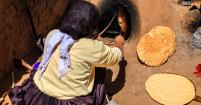

Tracking Financial Flows to Clean Cooking is Crucial for Global Accountability and Equitable Progress
Newsletter
The global energy gap is widening and billions of people continue to rely on harmful cooking fuels, according to the upcoming 2024 edition of the Tracking SDG 7: The Energy Progress Report. Recently, the International Renewable Energy Agency (IRENA) joined over 1000 delegates from 55 countries at the Summit on Clean Cooking in Africa, organised by the International Energy Agency (IEA) in Paris. With the gathering came announcements of new financial commitments of USD 2.2 billion for clean cooking from both public and private sectors, as spelt out in the Summit’s High-Level Declaration.
This is the largest financial commitment made towards clean cooking to date, and serves to demonstrate that clean cooking is being taken seriously as a challenging but solvable development problem. However, while this is a significant milestone, it is essential to approach it with caution. Previous major declarations and financial commitments towards clean cooking have lacked follow-up and accountability. Despite an estimated total pledge of over USD 2.8 billion from different global initiatives, there is still uncertainty about the realisation and accountability of these financial commitments.
IRENA has been active in tracking finance for renewable energy through flagship publications like the Tracking SDG7: The Energy progress report 2023 and Global landscape of renewable finance 2023. However, these efforts have not been able to adequately consider clean cooking; even though renewable-based clean cooking is a major part of clean cooking solution mix according to the Advancing renewables-based clean cooking solutions: Key messages and outcomes and Renewables-based electric cooking: Climate commitments and finance reports.
Data limitations are a major problem, with efforts underway to address them. The fact that participants at the Summit raised the need to track clean cooking finance (albeit from a narrow focus on pledges made at the Summit) reinforces the importance IRENA sees in this workstream.
Tracking finance towards clean cooking offers several benefits in addition to accountability for pledges made at events like the Clean Cooking Summit. It allows the global community to track where investments are going and the impact they make, boosting investors’ confidence and mobilising more funds for the sector. It also highlights the imbalances in allocation of funds across clean cooking value chains and ecosystems; such as the amount of funding going towards actual projects on the ground in comparison to what goes towards administrative and analytical work.
Additionally, it reveals if some cooking solutions are receiving more support than others; which helps to avert unintended consequences of such actions including market distortion and unfair competition. Furthermore, tracking clean cooking finance exposes any disparity in financial allocations across different population segments, such as urban versus rural and across socio-economic groups, ensuring that those who need support the most are not left behind.
Who should bear the responsibility for tracking clean cooking finance, and how it should be done, remain open questions. As a starting point however, it is reasonable to expect Sustainable Development Goals (SDG) 7 custodian agencies that include IRENA, the IEA, the United Nations Statistics Division (UNSD), the World Bank, and the World Health Organization to lead the way. Given the complexity of this task, it requires wide consultation and collaboration which build on existing efforts like the ongoing tracking of SDG 7.
With a billion people in Sub-Saharan Africa projected to lack access to clean cooking by 2030 if current trends continue, the role of finance in changing this trajectory is crucial. It is also important that the mobilised but limited fund is put into good use. Tracking financial flows towards clean cooking is therefore critical. Recognising the urgency, participants of the Summit on Clean Cooking in Africa supported the call for establishment of a follow-up mechanism to monitor progress on the financial commitments.
By focusing on tracking financial flows, we can enhance accountability, ensure efficient allocation of resources, and accelerate progress in providing clean cooking solutions. This will not only address health and environmental issues, but also significantly improve the quality of life for millions of people.

Expert Insight by:
Caroline Ochieng
Programme Officer – Energy Access Policy, Knowledge, Policy and Finance Centre, IRENA
© IRENA 2025
Unless otherwise stated, material in this article may be freely used, shared, copied, reproduced, printed and/or stored, provided that appropriate acknowledgement is given of the author(s) as the source and IRENA as copyright holder.
The findings, interpretations and conclusions expressed herein are those of the author(s) and do not necessarily reflect the opinions of IRENA or all its Members. IRENA does not assume responsibility for the content of this work or guarantee the accuracy of the data included herein. Neither IRENA nor any of its officials, agents, data or other third-party content providers provide a warranty of any kind, either expressed or implied, and they accept no responsibility or liability for any consequence of use of the content or material herein. The mention of specific companies, projects or products does not imply that they are endorsed or recommended, either by IRENA or the author(s). The designations employed and the presentation of material herein do not imply the expression of any opinion on the part of IRENA or the author(s) concerning the legal status of any region, country, territory, city or area or of its authorities, or concerning the delimitation of frontiers or boundaries.




